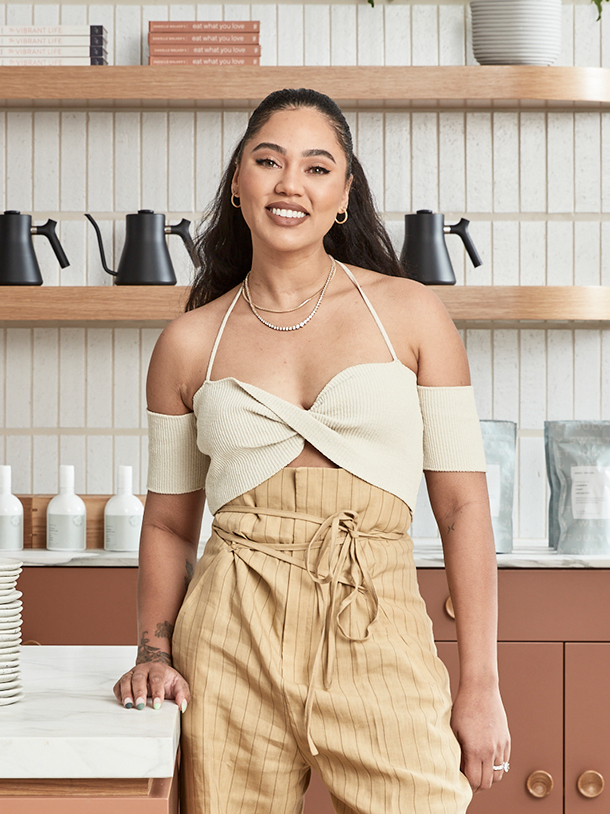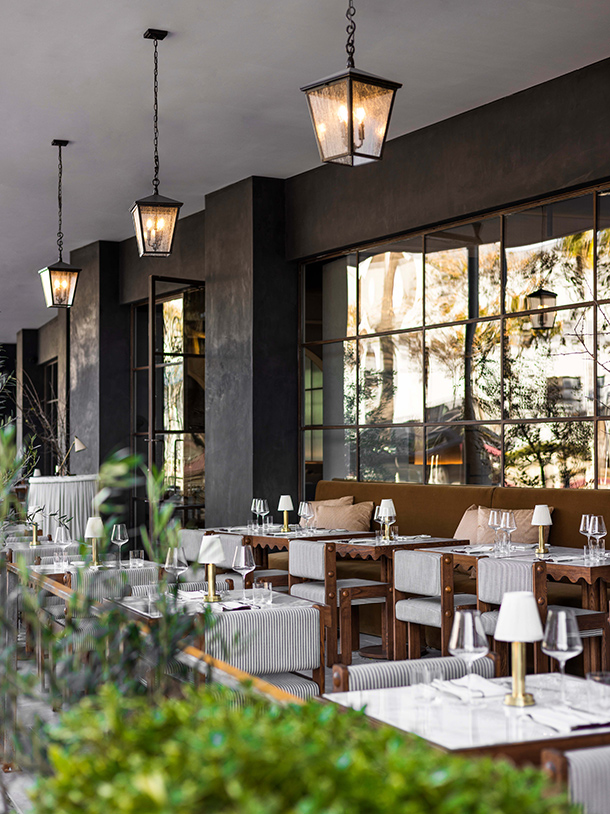Thomas Keller is known for a great many things: culinary powerhouse, restaurateur, mentor. His flagship restaurant, The French Laundry, has earned tremendous praise since he purchased it in 1994; it was awarded three Michelin stars in the inaugural San Francisco guide in 2007 and has retained them ever since. “It’s certainly an extraordinary honor. It’s something that I’m really proud of, but I have to thank the team,” he says. “Corey Lee was our chef de cuisine at the time. I remember when we received the phone call and went back into the kitchen that evening . . . and I sat on top of the piano with the staff around me and shared with them the fact that we received three Michelin stars—and it’s because of them.”
Last week, Michelin, Visit California and Visit Sacramento hosted a press conference held at the Golden 1 Center in Sacramento, revealing the expansion of the MICHELIN Guide with the announcement of the MICHELIN Guide California 2019. After remarks, guests, chefs and media heavyweights partook in a five-course lunch (with accompanying chef demonstrations), and listened to an intimate q&a with Keller led by Soterios Johnson, host of the California Now Podcast.
“Remember this—we receive accolades for what we did yesterday,” Keller adds. “Michelin gives us our award in November, but really it’s for the year before and as much as we’re proud of that, and as much as it reinforces what we’ve done and the path that we’re on and encourage us to continue to move forward, we have to be thinking about today and tomorrow. Receiving three Michelin stars is a huge responsibility—you have to bear that responsibility with strength, conviction, determination, and commitment, and your whole team has to do that every night. You’re representing over 100 years of history. The countless chefs that have been in that position, many of them that have made our careers possible. Before Paul Bocuse, [it was] Fernand Point. Before Fernand Point, Auguste Escoffier. There’s countless chefs that we stand on the shoulders of and we have to pay respect to who they were, what they did and the awards that they received. It’s a huge responsibility we have to remember and wear that with pride.”

You can do what you do anywhere you want. You can take your skills anywhere but you chose to call the Napa Valley home. In fact, you now have five establishments in the tiny town of Yountville. Why did you choose that location and what is so special about that part of California?
It’s interesting, I was on a trip to Northern California with a friend back in 1990 and a colleague of mine from New York was opening a restaurant just outside the city and they told me about The French Laundry. So I went up to visit and I fell in love with the restaurant and fell in love with the property. I went to see the owners [who] were selling the restaurant. So for me, my first introduction to Napa was really The French Laundry. So, I could have done something somewhere else, but The French Laundry wasn’t somewhere else—it happened to be in Napa Valley. So I got the advantage of finding what was becoming my life and The French Laundry and that the bonus was that it was in Napa Valley, California. So that’s how I found my way [there].
We’re just trying to look at the landscape at what our valley needs and what our town needs in terms of restaurants and that’s what’s kind of driven me to do these different types of restaurants to afford such a dynamic choice for our neighbors and our visitors.
What do you find so special about that area? What do you take advantage of? What allows it to let you do what you do?
One of the main reasons—I didn’t realize this until months after, maybe a year after I opened The French Laundry—is that Napa Valley is arguably our premium wine growing region in America. People from all over the world travel to Napa Valley to enjoy the wines. Whether you’re just beginning to learn about wine, or you have an average knowledge of wine or you're an expert on wine, you come to Napa Valley. And then if you translate that to food— because food becomes a very important part of what that wine experience is—you have this opportunity to invite so many people from all over the country, all over the world, of different levels of sophistication and knowledge, into our restaurants. So that really for me was an extreme opportunity to be able to not only impact our guests that come, but our team that works in the restaurant as well.

How important would you say are the relationships that you’ve developed with local farmers and foragers over the years? Are they a key ingredient to your success?
Yes, and you can’t take it for granted. One thing I like to always tell people is that the way to support our farmers, our fishermen, our foragers, our gardeners, is to pull your wallet out of your pocket and pay for the food that we’re bringing you. We all know that we can get cheaper food—but we’re not sure if we get more nutritious food. So when we find someone that we want to support, you really need to support them wholeheartedly and what they’re doing. Think about cooking—whatever level, whether it’s French Laundry level or Ad Hoc level—you’re talking about a simple equation. It’s ingredients and execution. So ingredients are fifty percent of that equation and it’s really important to build relationships with your supplier. (We like to call them our partners as opposed to our suppliers or purveyors.) Some of my partnerships have been going on for over 30 years, and I enjoy working with them because it’s a true family. Think about this idea of farm-to-table and knowing what they’re feeding their lamb, and how they’re taking care of their lamb, and how they’re slaughtering the lamb—the affection that they have for the animal makes it that much more gratifying, but also that much more responsible. The responsibility of taking care of the products that we see in our restaurants, or even the products that you see in your home, and making sure that we’re not in any way wasting them. Our suppliers, our partners, our foragers, our fishermen, our farmers, our gardeners, are really some of the most important individuals that make our restaurants [what they are], and I think any chef today would tell you the same thing.
Can you tell us a little bit about some of your favorite partners?
Aaron Keefer. He’s not just one of our partners, but he’s a colleague and works for not just The French Laundry, but all of our restaurants in Yountville and sometimes for Per Se [in New York]. He put together a collection of vegetables that he harvested from the garden either really early in the morning or late the night before. This represents the casual winter garden. You have bok choy, you have chards, you have kohlrabis here . . . all of those coming 150 feet from the restaurant. We have that kind of proximity—I know what that does is for our young culinarians is to understand where their food comes from and being able to go over there and work the garden with Aaron at any time they want. To sell the seeds, to weed the garden, to harvest, they get a sense of pride and responsibility for that.
One of our other partners in California is Soyoung Scanlan, who was a musician and she decided that she wanted to make cheese, and The French Laundry was a big part of her starting that business, so we’re really proud to have relationships and to also have impact on a person like that.
You’re truly partners—you’re making her whole enterprise possible.
Well that’s what chefs do. When you go into a restaurant and you’re spending a dollar, remember how much of that dollar goes to these individuals and the lives that are changed because of your support. I have a butter lady in Vermont, and she doesn’t make a lot of butter. And one year she called me and said, “Chef, I have to raise the price of your butter.” And I said, “Well Diane, I don’t really know how much your butter is.” She wanted to tell me why, and she said, “My son was accepted to NYU and I need to be able to support him.” Now, who in here would not want to spend a little more money on butter to support a young man going to get an education? These are things that all of you do when you go into a restaurant. It’s important to remember that—the impact that we have.
Photos by Max Whittaker.
















